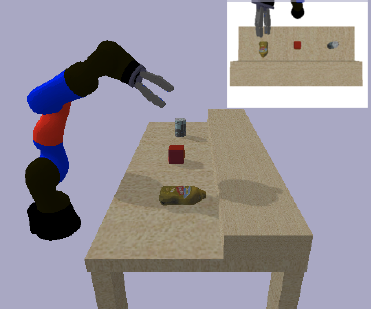NeurIPS 2019 – Robot open-Ended Autonomous Learning
NeurIPS 2019 Competition Track

Open-ended learning aims to build learning machines and robots that are able to acquire skills and knowledge in an incremental fashion in a certain environment. This competition addresses autonomous open-ended learning with a focus on simulated robot systems that: (a) acquire a sensorimotor competence that allows them to interact with objects and physical environments; (b) learn in a fully autonomous way, i.e. with no human intervention (e.g., no tasks or reward functions) on the basis of mechanisms such as curiosity, intrinsic motivations, task-free reinforcement learning, self-generated goals, and any other mechanism that might support autonomous learning. The competition challenge will feature two phases: during an initial “”intrinsic phase”” the system will have a certain time to freely explore and learn in an environment containing multiple objects, and then during an “”extrinsic phase”” the quality of the autonomously acquired knowledge will be measured with tasks unknown at design time and during the intrinsic phase.
Links
Details on the competition can be found on the project webpage.
Publications
2020 |
|
REAL-2019: Robot open-Ended Autonomous Learning competition Journal Article In: Proceedings of Machine Learning Research, vol. 123, pp. 142-152, 2020, (NeurIPS 2019 Competition and Demonstration Track). |  |